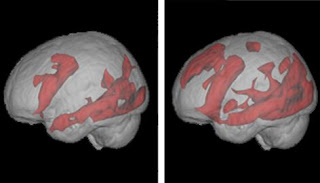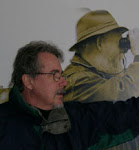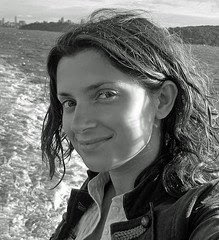
How best to use electronic [internet accessible] media materials for instructional purposes
by John Freed, Ph.D. freed@chapman.edu
- Be very contextual with the material clearly relating it to a specific learning objective for the class.
- Be highly selective about the quality of the material itself. Do your homework about the reliability of the particular source for the material as well as the content of the material. Produce your own electronic materials when appropriate from other less accessible media.
- Be sure to critically question all virtual authority (Wikipedia case in point vs. Encyclopedia). A very specific assignment focused on this very issue should be incorporated early on with the actual use of an electronically accessible source. [Point out the essential difference between what a university library collects and distributes and what the internet gathers and provides open access to.]
- Be very specific and current with the actual hyperlinks that you provide. The goal should be direct connection with a single click. Check them out personally immediately before you direct students to them.
- Be sure to supply the “So What” epilogue to the exercise.
- Be sure to provide a re-accessible [asynchronous] environment for everything above. This invites an opportunity for review, reflection and later synthesis of the learning. This environment might part of a course-specific BlackBoard site or a more generally accessible professional blog.
- Be sure to expand the common-wealth of resources by contributing as well as borrowing – (join a viral academic community such as Rice University’s Connexions or iTunes University or post your own professional blog linked to iTunes or not [CF . Google’s blog creation site -- https://www.blogger.com/start].
Examples Sheet for Instructional Uses of Electronic Resources
1. The Open-Access Instructional Resource project at
a. Richard Baraniuk: “Goodbye, textbooks; hello, open-source learning”: http://www.ted.com/index.php/talks/view/id/25
b.
2. Example of Electronic Primary Sources:
Ian Johnston’s The Iliad and links to other class primary resources:
http://malaspina.edu/~johnstoi/homer/iliad_title.htm
and Ian Johnston’s Translation of Homer’s Iliad reviewed on NPR:
http://www.npr.org/templates/story/story.php?storyId=6849615
3. Example of a Professor’s Professional Blog – (Expanding instruction beyond the classroom) such as this one.
4. Second Language Learning and Free University Courses:
- LiveMocha Free Language Courses:
http://www.livemocha.com/ [This site can also be used to refresh learning of Standard English as well as connecting globally to other English Language Learners.]
- BBC Spanish Course:
http://www.bbc.co.uk/languages/spanish/
- BBC Chinese Course:
http://www.bbc.co.uk/languages/chinese/
- General Language Resources:
- English as a Second Language Remediation:
http://owl.english.purdue.edu/owl/resource/678/01/
5. Guide to University
http://www1.chapman.edu/library/centers/GuidetoLibraryResources.pdf.
6. Ubiquitous Web Search Engine and Google Resources such as News, Books, Scholar, etc.
7. All Purpose Developmental Writing Tutorials
a. for Non-Purdue Instructors and Students:
http://owl.english.purdue.edu/owl/resource/679/01/
b. for use with Diana Hacker’s Handbook
http://bcs.bedfordstmartins.com/pocket5e/player/pages/Login.aspx?sViewAs=S&userid=
8. APA (American Psychological Association) Documentation and Style Guide (fifth edition):
http://www.vanguard.edu/faculty/ddegelman/index.aspx?doc_id=796
9. Academic Integrity (How to avoid Plagiarism):
10. Mathematics / Statistics:
a. Mathematics Tutorials from Beginning Algebra through College Algebra and GRE prep:
http://www.wtamu.edu/academic/anns/mps/math/mathlab/
b. Basic Statistics (MATU 203)
http://www.tufts.edu/~gdallal/LHSP.HTM
and
http://davidmlane.com/hyperstat/index.html
11. Miscellaneous Microsoft Office Tutorials:
a. MS Word Tutorial:
http://office.microsoft.com/en-us/training/CR061958171033.aspx
b. PowerPoint Tutorial:
http://www.iupui.edu/~webtrain/tutorials/powerpoint2000_basics.html
c. Excel Tutorials:
http://www.usd.edu/trio/tut/excel/index.html
and
http://www.micquality.com/excel_primer/
12. Free alternatives to Microsoft Office software applications.
a. Open Office:
b. Google Docs:
13. Other Free College Course Materials:
http://degreedirectory.org/articles/25_Colleges_and_Universities_Ranked_by_Their_OpenCourseWare.html
14. Study Skills and Adjustment to College:
Final Note: This listing of open-access electronic resources was prepared co-operatively by




